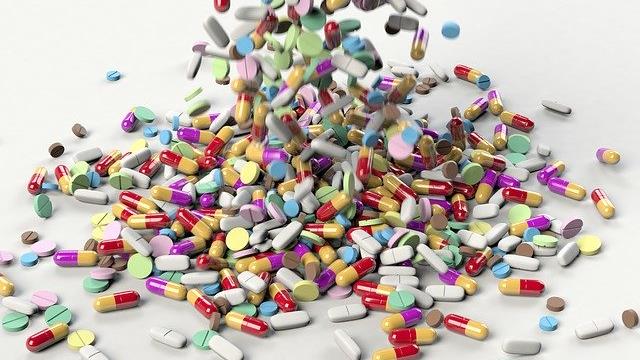

The rapid spread of the Covid-19 pandemic has shed light on the scope for growth in the GCC’s pharmaceutical sector.
Social distancing and precautionary measures continue to be enforced even as regional governments ease restrictions to restore economic activity.
This is because authorities recognise the severity of the new coronavirus, which has resulted in 49,495 infections, 8,372 recoveries and 283 confirmed deaths to date in the region.
Data on the speedy transmission of Covid-19 around the world is even more sobering.
Localisation is a critical priority for GCC governments, and several mandates to spur greater in-country value have been rolled out in the regional construction and energy industries over the past decade. Covid-19 could provide similar impetus to the domestic pharmaceutical manufacturing sector in the GCC
It took 83 days from 10 January, when China reported the first death from the new coronavirus, to reach the first million cases worldwide (2 April).
The next million took 13 days (15 April), and 12 days later, the number of Covid-19 cases around the world crossed three million.
Covid-19 vaccine
There are other questions surrounding the new coronavirus besides its rapid infection rate.
One such concern pertains to the development and deployment of a successful vaccine for Covid-19.
This is understandably a significant challenge for the global pharmaceutical sector.
GlobalData’s Analysis of the Emerging Disease Landscape report, published on 24 April 2020, states that the Covid-19 therapeutic pipeline consists of more than 300 drugs at various stages of development, up from just under 100 a month ago.
Of these 300 drugs, 73 are in phases 1 to 3 of development, which include clinical trials. As such, Covid-19’s drug pipeline is “largely in the early stage, with approximately 65 per cent of the drugs in discovery and preclinical phases”, GlobalData explains.

Its report continues: “From repurposing marketed products to developing brand-new agents, the players in [the pharmaceuticals sector] have already demonstrated a high level of commitment to identifying effective disease prevention and treatment options.
“As trial readouts occur over the coming months, it will become clear which companies and products are most likely to emerge as leaders in this new market.”
R&D in the GCC
Organisations in the GCC are ramping up research and development (R&D) initiatives in response to Covid-19.
Earlier this month, a group of 20 researchers, scientists and engineers was assembled to form an Abu Dhabi-based Covid-19 response team.
This team will work to develop artificial intelligence-powered chest x-ray machines, 3D-printed medical equipment parts, and new sterilisation procedures for personal protective equipment and large-scale public spaces.
It took 83 days from 10 January, when China reported the first death from the new coronavirus, to reach the first million cases worldwide (2 April). The next million took 13 days (15 April), and 12 days later, the number of Covid-19 cases around the world crossed three million
Similar efforts are under way in Saudi Arabia, the GCC’s worst-hit country for Covid-19 cases.
King Abdulaziz University has picked 42 proposals to conduct research on the new coronavirus.
Members of the R&D programme will study ways to deal with Covid-19, provide a scientific prediction of its short- and long-term impacts, develop rapid diagnosis methods and propose solutions to the socioeconomic challenges posed by the pandemic.
These initiatives are likely to boost medium- to long-term healthcare security in the region.
However, the more pressing demand for medical products to combat Covid-19 in the GCC is being met through the import and fast-tracked manufacturing of masks, ventilators, hand sanitisers, testing kits and medicines such as hydroxychloroquine, an anti-malarial drug that was initially expected to be efficient against Covid-19.
The most significant of these imports is China’s SR996.7m ($265m) agreement to supply Saudi Arabia with nine million coronavirus test kits, 500 specialist technicians and six test laboratories.
These developments are significant because the GCC does not have a dearth of domestic drug manufacturers, and is the home base of heavyweights such as Saudi Pharmaceutical Industries and Medical Appliances Corporation and Julphar (UAE).
From repurposing marketed products to developing brand-new agents, the players in [the pharmaceuticals sector] have already demonstrated a high level of commitment to identifying effective disease prevention and treatment options
However, domestic drug-makers in the GCC have historically focused on the production of generics, which refers to products that are chemically similar to products that were formerly patent-protected.
One 2013 study by Alpen Capital claimed this trend had led to domestic producers taking only a small share of the GCC market, with the majority of expatriate physicians and residents in the region gravitating towards imported and branded drugs with familiar names.
Localisation is a critical priority for GCC governments, and several mandates to spur greater in-country value have been rolled out in the regional construction and energy industries over the past decade.
Covid-19's widespread impact could provide similar impetus to boost localisation in the GCC's pharmaceutical manufacturing sector.
You might also like...

Iran-US talks see earnest engagement
27 February 2026

Kuwait receives bids for $400m Subiya utilities plant works
27 February 2026

A partner’s perspective on working with Sharakat
27 February 2026

Egypt’s Obelisk equity move merits attention
27 February 2026
A MEED Subscription...
Subscribe or upgrade your current MEED.com package to support your strategic planning with the MENA region’s best source of business information. Proceed to our online shop below to find out more about the features in each package.
Take advantage of our introductory offers below for new subscribers and purchase your access today! If you are an existing client, please reach out to your account manager.









